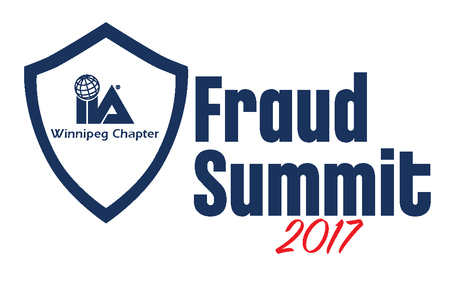| Conference Program |
Are you Cyber Aware?
Danny Timmins, CISSP, National Security
Leader, MNP
Cyber security breaches, threats and
attacks are becoming commonplace in today’s world and have proven to be huge
disruptors to even the most savvy of organizations. Almost every business, no matter what size, is
increasingly vulnerable and being prepared for potential cyber security
disasters is critical.
MNP’s National Cyber Security Leader, Danny
Timmins, will explore the following:
·
Real-world ways that Cyber
Fraud happens. We will discuss:
o
Phishing, Malware, Hacking,
Web, etc.
o
What’s at Risk? & Why the
dark web?
·
Relationships between IA, IT
Security Team, management and boards on the topic of cyber security
o
How to understand and identify
cyber risks
o
Prioritize Risk Reduction
o Real world practical recommendations
Employee Dishonesty and the Role of Ethics Training
Andrew H. Kautz, CFE, Manager of the Special Investigations, Great-West Life Assurance Company
In this interactive session we will look at the definition of “Ethics” and what that term means in relation to the workplace and investigating allegations of employee dishonesty. We will also examine “Employee Ethics Training” and discuss whether or not it is effective at preventing or minimizing employee dishonesty.
Capital
Construction Projects- Design and Construction Fraud
Kerry Church, C.T. Arch, PMP, Director, Facilities Development Corporate Property Services, Manitoba Liquor & Lotteries
The design and construction industry is susceptible to numerous types of fraud. In this presentation, Kerry Church will draw on his vast experience in the design and construction industry to provide an overview of common types of fraud during design, bidding, and construction activities; the roles responsibilities and relationships that play a role in fraud; and methods used to provide fraud awareness and protection.
Effectively Responding to Fraud
H. Ray Hawood, Director, PricewaterhouseCoopers LLP
All organizations - big or small, public or private - are susceptible to some form of fraud. What is critical is the response when there is a suspicious transaction or activity or complaint of fraud. An effective response involves taking appropriate steps when a fraud is reported, including protecting information and evidence, dealing with employee(s), seeking external assistance to conduct an investigation and providing the requisite advise. Using scenarios from actual investigations, we will discuss strategies and solutions to consider before, during and after the investigation process, including lessons learned from prior cases.
The World of the Whistleblower: Things Are Starting to
Change
Sandy Boucher, Senior Investigator, Grant Thorton LLP
As whistleblowers are becoming accepted as an invaluable resource, organizations must learn who whistleblowers are and why they make their reports. They must also learn how to foster and encourage a speak up environment that will empower people to come forward. Learn how potential whistleblowers think and act, how effective whistleblower systems are designed and developed and how to harness whistleblower knowledge to fight fraud and improve organizations.






